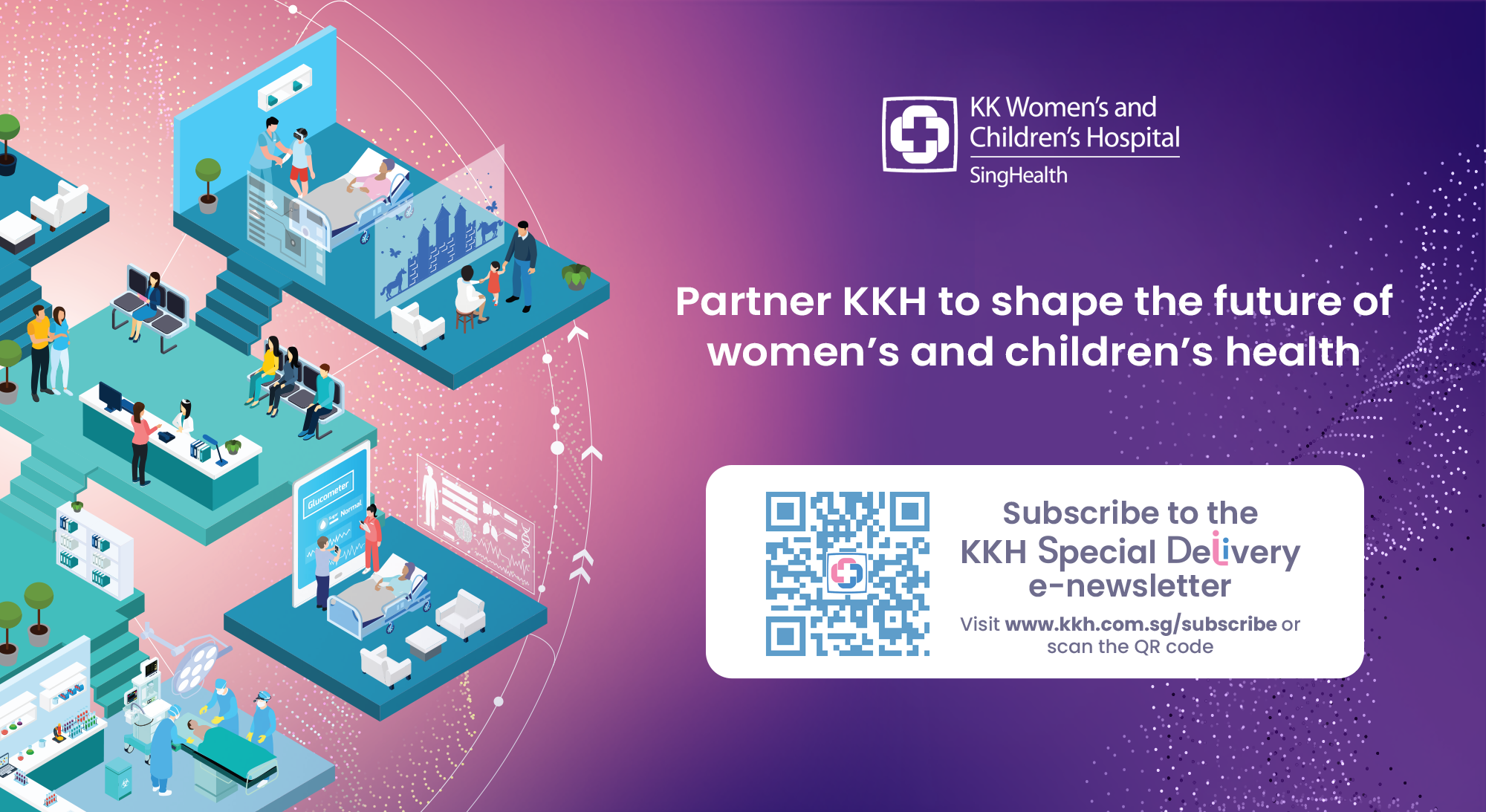Diabetes Care Navigator and Nurse Clinician, Ms Asmira Bte Mohamed Rahim, guides a pregnant patient on the self-administered finger-prick test to monitor her blood sugar levels.
In Singapore, up to one in five women are at risk of gestational diabetes mellitus (GDM), a condition that puts them at increased risk of developing high blood pressure during pregnancy, experiencing preterm labour, maternal complications and developing Type 2 diabetes mellitus (T2DM) in their lifetime.
Despite the risks, about 90 to 95 per cent of women with GDM do not undergo regular check-ups to monitor their diabetes condition after delivery to ascertain if their condition has resolved, or maintain a routine of screening for T2DM at least once every three years.
To improve detection, care and support for this vulnerable group, in September 2017, KKH and Temasek Foundation Cares introduced the ‘Temasek Foundation Cares GDM Care’ programme, which aims to pilot a novel model of care encouraging all pregnant women receiving antenatal care in KKH to undergo GDM screening, and receive appropriate antenatal and postnatal care and follow-up to track and manage their diabetes condition.
The $1.09 million programme aims to benefit about 5,400 women with GDM and their families over a three-year period. “The incidence of GDM is rising globally due to an increasing average age for childbearing, as well as an increased prevalence of diabetes in the population, exposing both mother and baby to increased health and mortality risks,” explains programme lead,
Professor Tan Kok Hian, who is also Head and Senior Consultant, Perinatal Audit and Epidemiology Unit, Department of Maternal Fetal Medicine, KKH.
“Children born from pregnancies affected by GDM tend to be big babies weighing more than four kilogrammes at birth, putting them at higher risk of suffering birth trauma and a lack of glucose in the bloodstream which can lead to long-term negative health effects. They also have higher risks of developing obesity and T2DM later in life,” Prof Tan adds.
Better care for mothers and babies
Under the pilot, all expectant mothers in KKH are offered routine GDM screening between 24 and 28 weeks of gestation. Expectant mothers with GDM are also guided by a team of Diabetes Care Navigators in observing a care plan for optimal management of the condition, to achieve the best outcomes for both mother and child.
Educational support will be provided to patients and their families during pregnancy and after delivery to encourage healthier lifestyles and minimise the health risks arising from a pregnancy affected by GDM. If the condition persists after delivery, they can be referred to a network of care partners for further evaluation and follow-up management of their condition.
Subsidies will also be provided to women who require further financial assistance to optimise care for themselves and their families.
“The Temasek Foundation Cares GDM Care programme is truly a welcome boost to our ongoing efforts to enhance care and improve health for women and children. Through the early detection, timely intervention and close follow-up care afforded by this structured care and education programme, we are closer to optimising prevention and management of diabetes and its associated health risks for our future generations,” says Prof Tan.
Pioneering programmes to boost mothers' health and give babies a better start to life With the vision to provide excellent, holistic and compassionate care for women and children, KK Women's and Children's Hospital (KKH) continually seeks better and more effective ways to improve patients' lives. Ongoing efforts received a welcome boost in late 2017, with collaboration between KKH and Temasek Foundation Cares to introduce pilot programmes to help optimise detection and care for women with
gestational diabetes mellitus, and launch
Singapore's first donor human milk bank programme to provide donated breast milk to premature and sick babies in Singapore. |

